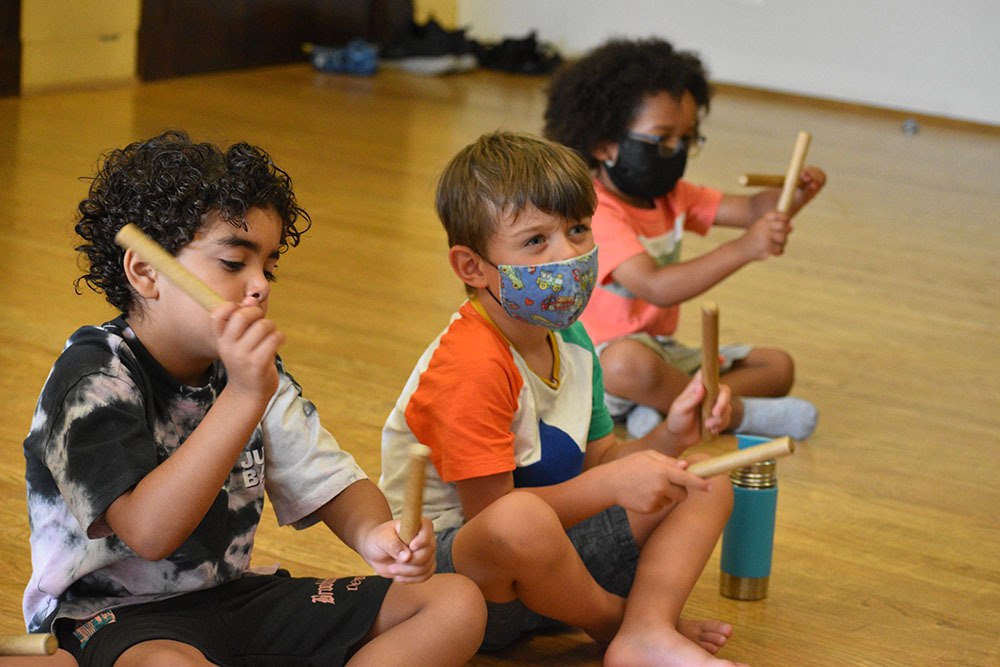Learning a second language as a child has wide-ranging benefits. Yet only 25 percent of U.S. elementary schools offer foreign language instruction, according to the Center for Applied Linguistics’ preliminary 2008 National K-12 Foreign Language Survey.
But that doesn’t mean children have to wait until middle school or high school to learn a world language. Several extra-curricular language instruction options are available to Delaware Valley families.
Group Instruction
One of the most popular methods for teaching young children a second language is through group classes, available through private providers, cultural centers and non-profits. Parents interested in enrolling their child in a group language class can expect to pay from $7 to $25 per hour.
“The small group dynamic allows kids to interact and learn from each other as well as the instructor,” says Gary Klosner, director for Dynamic Language Services in Haddonfield, NJ, which offers year-round classes and tutoring in a variety of languages as well as a summer camp in partnership with the Haddonfield Friends School.
“The key factor is that children enjoy the class,” says Briant Sarris, assistant director of Berlitz Kids, which provides group classes, tutoring, summer camps and online instruction throughout the U.S. Like many programs, Berlitz uses games, songs and role plays to teach language in a fun atmosphere.
“Immersion is ideal. That way, children don’t learn isolated words. They learn how to communicate,” says Marcela Summerville, director of the Spanish Workshop for Children, with locations in Pennsylvania and New Jersey.
Christina Babb of Eagleville, PA, whose two daughters take classes at the Spanish Workshop for Children says, “Within a short 45-minute class for the two-year olds, the teacher gets them up moving and using their body to learn action words and phrases, and then switches to a paper doll to demonstrate clothing, then to a craft where they learn more action and object words. The children think it’s fun; therefore they want to go to class.”
Many programs, particularly cultural centers, incorporate culture into their lessons to round out the learning experience. “We offer a lot of cultural traditions,” says Tammy Sergeyev, executive director of The Immanuel German School which offers Saturday morning classes for ages 4 and older in Huntingdon Valley, PA. The school celebrates German holidays and offers field trips to local museums and area events to provide insight into German culture.
Summer Programs
Summer world language programs can cost $120 to $250 per week. “If a student has never taken a second language, a summer program can be a wonderful introduction to a new language and culture,” says Barbara Barnett, head of modern languages at The Agnes Irwin School in Rosemont, PA. The school offers French, Spanish, Chinese and Latin classes to various age groups throughout the summer. “If children have already taken classes in a second language, summer programs can reinforce and further develop skills.”
Many organizations that offer classes during the school year also feature summer programs or camps. “In summer camp, children receive more intensive instruction than in most other program types,” says Sarris. “This leads to greater retention, less time spent in review and quicker progress. The learning achieved in just three weeks of intensive instruction is impressive.”
Many summer camp programs include traditional games and activities. “Summer camp is fun,” says Xia Li. “Children form groups of friends and play games, sing songs, dance and learn karate while learning the language.”
Private Tutoring
Many organizations that offer group language classes also offer one-on-one tutoring. Parents can also search for an independent tutor online. Expect to pay $15 to $60 an hour for private tutoring.
“While groups permit interactivity and practice among peers, students in private instruction often progress more quickly than those in a group,” says Sarris. “The instructor is better able to focus on the student’s needs and progress at the pace of the child.”
Online Instruction
While not widely available for young children yet, online instruction is becoming a new option for language learning.
Sarris explains, “The Berlitz Virtual Classroom provides live, instructor-led programs that are a great option for children ages 12 and older who have a strong motivation to learn a new language or who live too far away from one of our centers to take classes face-to-face.”
Berlitz also offers online programs for ages 8-11, but parent participation in the sessions is required. The cost for live, instructor-led online programs is $18 to $25 an hour.
Susan Stopper is a contributing writer to MetroKids.






